Owais Mughal
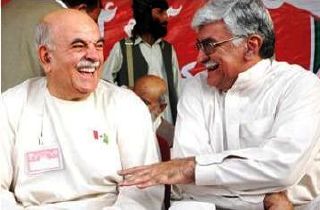 A news of significance from last week, which got buried among other high stake news is the alliance of Awami National Party (ANP) and Pakhtunkhwah Milli Awami Party (PkMAP). The new alliance is named as Pakhtoonkhwah National Democratic Alliance (PNDA) with Senator Asfandyar Wali Khan, President of the ANP, as is its chairman.
A news of significance from last week, which got buried among other high stake news is the alliance of Awami National Party (ANP) and Pakhtunkhwah Milli Awami Party (PkMAP). The new alliance is named as Pakhtoonkhwah National Democratic Alliance (PNDA) with Senator Asfandyar Wali Khan, President of the ANP, as is its chairman.
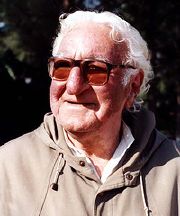 Historically, ANP has been a left-leaning and secular party whose ideology was influenced by the former Soviet Union (USSR). Although left-leaning, it has never been a ‘communist’ party in the strict sense. The PkMAP on the other hand derives its strength from the Pashtun nationalism and most of its support comes from the Pashtun area of Balochistan.
Historically, ANP has been a left-leaning and secular party whose ideology was influenced by the former Soviet Union (USSR). Although left-leaning, it has never been a ‘communist’ party in the strict sense. The PkMAP on the other hand derives its strength from the Pashtun nationalism and most of its support comes from the Pashtun area of Balochistan.
ANP’s predecessor, the National Awani Party (NAP), played an important role in formulating Pakistan’s constitution of 1973 and especially in crafting its clauses related to provincial autonomy. The leader of ANP (NAP) the late Wali Khan was particularly insistent on this point.
The fall of USSR left ANP rudderless as far as ideology was concerned. It had to adjust its politics in the shadow of the Afghan war and in its aftermath. For much of this time the slogans of greater Pakhtunkhwah looked distant. Early and mid 1990s even saw both ANP and PkMAP forming alliances with rightist Muslim League party of Nawaz Sharif in both center as well as in NWFP and Balochistan. This was probably the biggest ideological U-turn of ANP. This move may have cost them lots of disillusioned supporters.
The vacuum created by the ideological confusion in Pashtun nationalist party ranks was very quickly filled by the rise of religious parties. So much so that in 2002 elections both ANP and PkMAP got routed from the western provinces of Pakistan. Mahmood Khan Achakzai of PkMAP was the only Pashtun nationalist leader who got elected in 2002. The situation became such a sour-grape for ANP that few month ago Gluam Ahmed Bilour of ANP gave this satement:
“MMA should immediately enforce shariat in NWFP.”
His was probably hoping that people will soon get fed up with the laws made and implemented by MMA and may come back to the ranks of nationalist parties. I believe the recent Lal Masjid operation in Islamabad as well as 12th May incidents in Karachi have provided the necessary impetus to Pashtun nationalist parties to revive their support and ranks. Most of the people affected in these two incidents hailed from NWFP districts. Add to this the likelihood of coming elections in late 2007, it comes as a logical next step that ANP and PkMAP join hands.
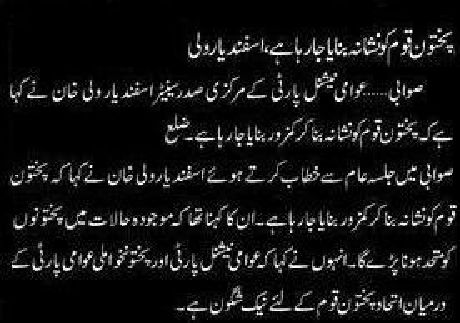
The alliance between ANP and PkMAP was announced on July 25, 2007 and its initial demands include the creation of a separate province for Pashtuns. This proposal calls for including the whole of North West Frontier Province (NWFP), Mianwali and Attock districts from Punjab and 11 districts of Balochistan (Chaman, Quetta, Zhob, Sibi, Pishin, Qila Abdullah, Qila Saifullah, Musakhel, Loralai, Balarkan and Ziarat) in the new province to be called Pakhtoonkhwah. Pashto is proposed to be its official language. The alliance leaders also call for the Pashtuns to see which ethnicity is suffering the most in the recent spate of violence.
Some of the demands of this new alliance outright challenge the beliefs of many of us. Many Pakistanis believe in a strong center and provincial boundaries are considered holy. The demands of the alliance are a direct challenge to this thinking. The alliance however, has the potential of taking people away from the violence – the violence of the type which we are currently seeing in western provinces – so for that reason alone it could be a good news. But what might this return to ethnic politics mean in the long run? I am not sure. A friend remarked to me the other day that this is like letting loose a monster to tackle another and they may end up becoming even more monstrous.
At a personal level I am sympathetic to the demand for a new province and new official language. My argument is that it should be determined through referendum and if that is what people want then people’s will should be respected. For example, I am not sure if people of Mianwali want to go with this idea. They may more likely vote for a Seraiki province than Pakhtoonkhwah, therefore these decisions should be based on voting/referendums all along. The principle of giving smaller regional groups the space to operate democractically is, however, a good one.
There is one more demand of this alliance which I find very legitimate. Quoting the daily News it goes like this:
The Pakhtoon leaders said that the federation should safeguard rights of the federating units on the basis of equality, ensuring the constitutional institutions key role in this context.
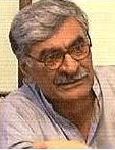
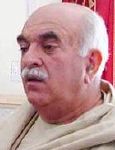 This is not end of story here as there is yet another dimension to this alliance. A lesser known fact is that ANP and PkMAP both have a very strong support in Karachi city. Their call for Pashtun unity in Karachi area is probably timed around elections as ANP-PkMAP may be eyeing a few provincial or even a National Assembly seat from the city. The events of May 12 have only highlighted the importance of this dimension. Since May 12 incident both Asfandayar Wali and Mahmood Khan Achakzai have made several trips to Karachi and talked about Pashtun unity. In the local city politics context it may cause even more polarization of people on the basis of ethnicity and to me it does bring back the haunted memories of what the city went through in fifteen years period of 1983-1998. While pride in one’s ethnic identity is a good thing, politics based of ethnic rivalries cannot be good for the country.
This is not end of story here as there is yet another dimension to this alliance. A lesser known fact is that ANP and PkMAP both have a very strong support in Karachi city. Their call for Pashtun unity in Karachi area is probably timed around elections as ANP-PkMAP may be eyeing a few provincial or even a National Assembly seat from the city. The events of May 12 have only highlighted the importance of this dimension. Since May 12 incident both Asfandayar Wali and Mahmood Khan Achakzai have made several trips to Karachi and talked about Pashtun unity. In the local city politics context it may cause even more polarization of people on the basis of ethnicity and to me it does bring back the haunted memories of what the city went through in fifteen years period of 1983-1998. While pride in one’s ethnic identity is a good thing, politics based of ethnic rivalries cannot be good for the country.
Whether this loose alliance of ANP-PkMAP will result in an electoral alliance is still to be seen. Yesterday’s news is that the verbal agreement between Asfandyar Wali Khan and Mehmood Khan Achakzai has not materialized on ground yet. So far no headway has been made to form bodies for making recommendations for a merger or formation of an electoral alliance of these parties. I guess, only time will tell how this alliance plays out in long term.
Now looking beyond this particular alliance, there is a strong ethnic under-current running in Pakistani politics today. This factor is stirring the pot slowly and the outcome can become a major defining force in the future of Pakistan politics. Possibly as major a force as religion has become today. Those who think about Pakistan politics should keep a close watch on how this under-current develops. People didn’t talk about it in open but these differences were very visible even in CJP reinstatement issue where it was very clear which geographical area of Pakistan were drawing support for or against him.
In next elections, I will not be surprised if Baluch nationalist parties sweep the whole Baluch belt of Baluchistan as well as make inroads into PPP’s stronghold in Southern Karachi towns.
Therefore the need of the hour is to face the reality and be inclusive of regional parties; To build unity through diversity; To acknowledge and address the legitimate concerns of smaller provinces and groups, and to create the mechanisms for them to participate meaningfully in national politics.
I will here present the argument that most of the regional parties have played their national roles whenever they are considered worthy of it. ANP, PkMAP, MQM, BNP, JWP have (or had) all joined hands with federal parties in the past. ANP uses English and Pakistan’s national language Urdu only at its website to promote their message. Ms Hameeda Khoro whose past has been associated with Jiyay Sindh party has played continuous active role at federal level.
We can see a stronger Pakistan with more and more participation of regional and provincial parties at National level. Most of the regional issues and people behind them need an acknowledgement of their issues at Federal level. They sometimes play the role of an angry child who needs more recognition. Just listen to them, talk to them and at the very least try solving their issues sincerely. We will get a stronger Pakistan in return.




















































Faraz,
“Wheat from Punjab” was noway intended as a suggestion, merely a hypothetical scenario for the people who demand “royalty” for national assets.
As far as provincial autonomy is concerned, I am not a big fan of it. I am a proponent of a strong federation with provincial governments playing their administration roles like it is.
In a perfect world, I would divide Pakistan into 25 to 30 “districts” based on population and would abolish the provinces all together because in my view they promote nothing other than hatred. In a smaller administration structure people will have easier access to the government and the system will get more streamlined, at least in theory.
Faraz, may I propose a transit fee in pujab for all Indian goods destined for these other provinces. You’ll still buy our wheat, just at double the price.
Haris Siddiqui i found no issue in giving provinces autonomy. As for “wheat”, if punjab is imposing tax on wheat then other provinces may be given choice to import it from India.
Provincial autonomy will make Sind,NWFP and Baluchistan happy. We should also think of creating “seraike” province because a smaller Punjab will be better for federation of Pakistan. I will support changing name of NWFP but dividing Baluchistan will not be acceptable to Baluchis and Baluchis have already suffered a lot from Pakistani federation.
I forgot to add! PAKISTAN ZINDABAD :-) For once guys please act like a nation and not a crowd.
The mentality of our nation has been screwed up since the creation of Pakistan. We always thought about “rights” and “privileges” on the basis of our ethnic, sectarian and linguistic back ground and smaller provinces always thought that their rights were violated by Punjab. Ethnic nationalist parties always threw gasoline on that fire to gain political power because dividing people is easier than uniting them.
In 1971 Bangladeshi citizens also had this feeling of being used and Mujeeb used to say in his speeches ” Sorah paisah Bangoli banata hai aur sorah paisah Punzaabi kha jota hai” (my poor attempt at Bengali accent) . After the creation of Bangladesh how many questioned him that Sheikh Sahib what happened to that sara paisa? if Bangladesh was running two countries with its revenue then it should have been an economic power by now since it had to care for only half the people from its reported revenue? The reality is that even today Pak Army’s aviation rescue team has to go to rescue poor people from flooded plains of Bangladesh.
The matters of revenues and royalties have been blown out of proportions by these so called political parties. Today NWFP demands royalties from power generation even though the dams were built and paid for by the whole nation, not just Pakhtuns. Same situation arises in Balochistan when it comes to Sui Gas or copper mining. I am not saying that the local population should not enjoy these assets but in my point of view they don’t have any special rights on them just as much as the rest of the Pakistani people do.
People who get emotional on these issues should stop and think for one second. What happens if Punjab all of a sudden imposes 50% tax on all wheat and rice that is grown in Punjab and is exported to other provinces in the name of “royalty” ? How would they react?
Please don’t take my comments in the wrong sense. I am all for developing the small provinces and giving the local population all the facilities of a modern life and opportunities to advance but not on the basis of how much power is generated on their lands and how much gas is available there but based on the fact that they are all Pakistanis and deserve the same rights and opportunities available to the rest of the nation, nothing more and nothing less.
As a side note, does anybody know how much “royalty” Punjab gets from the mining operations that were developed by the British and not by the national revenue? The answer will surprise you.